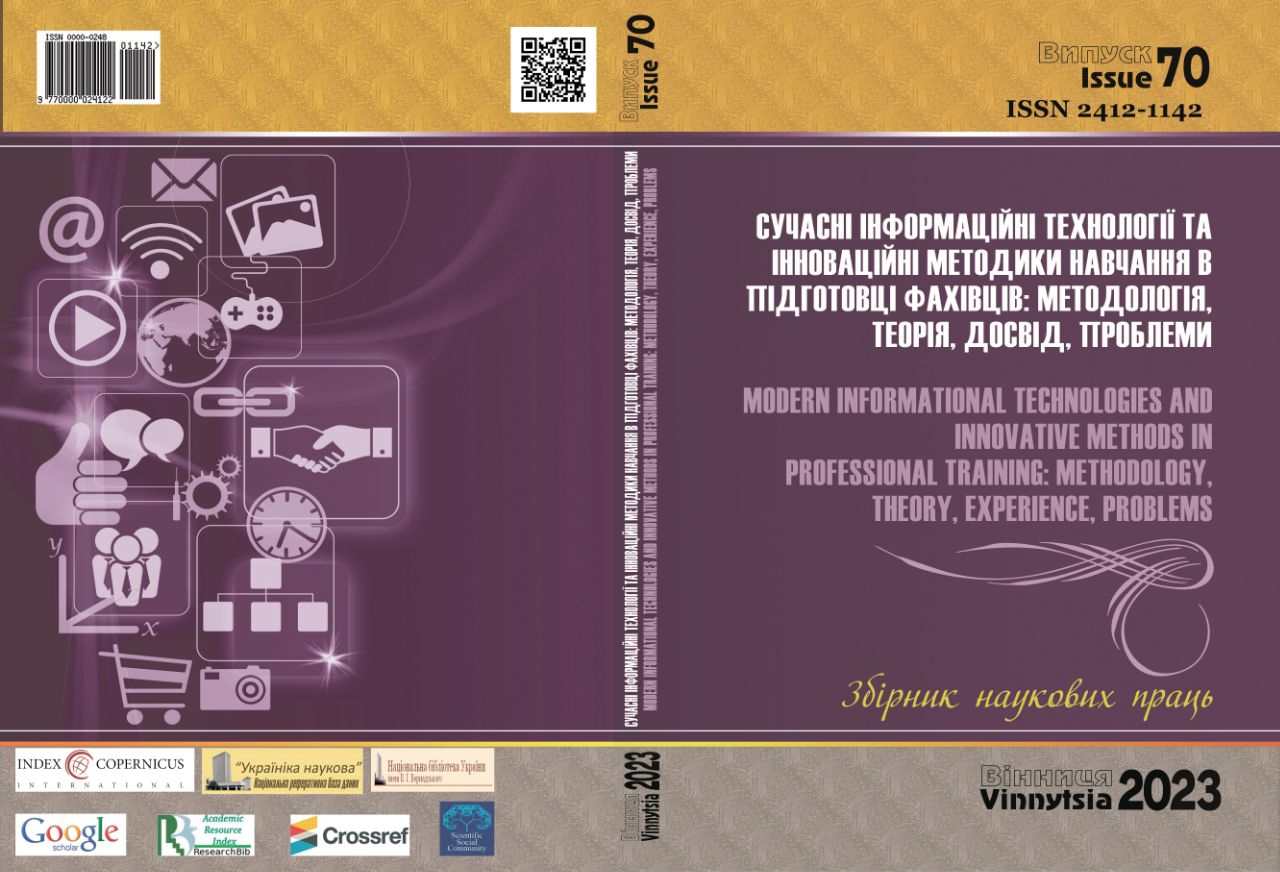DEVELOPMENT OF ACADEMIC MOBILITY OF STUDENTS IN GERMANY
DOI:
https://doi.org/10.31652/2412-1142-2023-70-231-240Keywords:
stages of development, academic mobility, Bologna Declaration, Lisbon Convention, universities, higher education institutions, GermanyAbstract
In today's globalised world, ties between countries are developing at all levels and in all areas, and education is no exception. Academic mobility is not only a matter of interest to academics, but also to political institutions and businesses. It brings states closer together, creates important and necessary links between their representatives, which will help to bring such cooperation to a new level in the future. The article analyses the development of academic mobility of students in Germany. In the course of the work, the author used a globalisation approach in order to correctly interpret Germany's foreign educational and cultural policy at all stages of its historical development. The paper uses historical analysis to chronologically describe the formation of the pan-European and German education and science policies. Comparative analysis is used to identify the peculiarities of academic mobility in Germany and in the European Union as a whole, as well as to trace the evolution of academic cooperation between states. The study identifies three stages of formation and development of academic mobility in Germany: the period of academic mobility's origin (XIV century - mid-twentieth century); the period of development of inbound mobility (mid-twentieth century - 80s of the twentieth century); the period of development of bilateral mobility (80s of the twentieth century - first quarter of the twenty-first century). It is stated that the signing of the Bologna Declaration had a tremendous impact on the development of international cooperation and the development of mobility between higher education institutions in Germany and the countries participating in the Declaration. It has been established that academic mobility is an effective mechanism for creating the image of the state and also has a mass effect.
Downloads
References
Академічна мобільність як фактор інтеграції України у світовий науково-освітній простір". Аналітична записка. URL: https://niss.gov.ua/doslidzhennya/gumanitarniy-rozvitok/akademichna-mobilnist-yak-faktorintegracii-ukraini-u-svitoviy (дата звернення: 01.09.2023)
Болонська декларація. Електронний ресурс.. Режим доступу: https://euroosvita.net/prog/data/attach/1038/BOLOGNA_DECLARATION.pdf (дата звернення: 01.09.2023)
Вербицька С. В. (2009). Міжнародна студентська академічна мобільність: етапи розвитку та суб’єкти організації. Вісник Житомирського державного університету. Випуск 45. С.20-26.
Карпенко М. М. Пріоритети розвитку вищої освіти в Україні в руслі загальноєвропейських тенденцій Електронний ресурс.. Режим доступу: http: www.niurr.gov.ua
Офіційний сайт DAAD Електронний ресурс.. Режим доступу: www.daad.de. (дата звернення: 03.09.2023).
Слюсаренко О. М. (2015). Розвиток найвищого університетського потенціалу в умовах глобалізації: монографія. Київ : Пріоритети. 384 с.
Скиба Т. Ю. (2013). Аналіз стану і тенденції розвитку вищої освіти в Україні. Наукові праці. Державне управління. Вип. 202. Т. 214. С. 136–140
Сушик, О., Сушик, І. (2019). Академічна мобільність українських студентів в історичній ретроспективі: витоки, напрями, мотиви. Освітологія, (8), с.8–18.
Федорова І. І. Академічна мобільність українських студентів сучасного освітнього простору Електронний ресурс.. Режим доступу: http://osvita.ua/abroad/higher_school/39508/
Altbach, Ph. G. (2002). Knowledge and education as an international commodity: the collapse of the idea of the common good. International Higher Education, 28, 2-5.
Altbach, Ph. G., Knight, J. (2007). The internationalization of Higher Education; motivation and realities. Journal of Studies in International Education, 11.
Baron, B. (1993). The Politics of Academic Mobility in Western Europe. Higher Education Policy, 6(3), 50-54.
Bradbury, S. (2004). Libanius' Letters as Evidence for Travel and Epistolary Networks among Greek Elites in the Fourth Century. Travel, Communication and Geography in Late Antiquity: Sacred and Profane / Eds. L. Ellis, F.L. Kidner. Aldershot / Burlington. P. 73-80.
Lisbon European Council (2000) Електронний ресурс.. Режим доступу: http://www.europarl.europa.eu/summits/lis1_en.htm
Teichler, U. (2009). Internationalisation of Higher Education: European Experiences. Asia Pacific Education Review, 10, 93-106
Chitoran, D. (1988). Student mobility in the Europe region: a statistical evaluation / D. Chitoran, V. Nicolae. Higher education in Europe, 8, 3, p. 51.
Kerr, С. (1994). Higher education cannot escape history: issues for the twenty first century. Suny Series Frontiers in Education. Albany: State University of New York Press. – 248 p.
Powell, J.J.W. (2010). Comparing Transfers of Skill Formation Institutions in Germany, Great Britain and the United States. Presentation at the INVEST Workshop. Institutional Change at the Nexus of Vocational and Higher Education. Berlin: WZB, 16.
Waters, J. L. (2007). Roundabout routes and sanctuary schools: The role of situated educational practices and habitus in the creation of transnational professionals, Global Networks, 7 (4), 477–497.
Downloads
Published
Issue
Section
License
Copyright (c) 2023 Кириченко Дмитро Олександрович

This work is licensed under a Creative Commons Attribution 4.0 International License.





